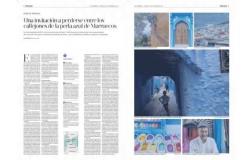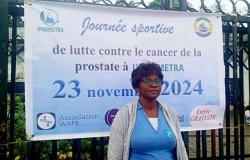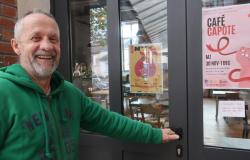On the fringes of the legal prostitution market, criminal networks organize a completely illegal offer in French-speaking Switzerland. As RTS learned, South American sectors are currently very active. Among the women who prostitute themselves, there are victims of trafficking.
On the most popular dating sites in French-speaking Switzerland, classified ads for women claiming to be from South American countries are now particularly numerous.
Some, with European papers, prostitute themselves completely legally. Others, however, are completely illegal. Without a residence permit or work permit, they offer paid sex only in private apartments or hotel rooms. A practice normally subject to very restrictive conditions.
As the RTS investigation center reveals, this illegal prostitution is booming. A phenomenon that annoys those who comply with the legal framework. And is giving the authorities a hard time today.
Unfair competition
Loïc Duc manages two erotic salons in French-speaking Switzerland. One in Lausanne and the other in Bulle. Two establishments which employ several prostitutes. Everything is regularly checked by the competent authorities. You have to show your credentials in this highly regulated sector.
For almost two years, Loïc Duc has seen its turnover decrease. Minus 50%. Advertisements from South American women would be the main cause. “In addition to being illegal, they cut prices. Around 150 francs for services without protection, meaning without a condom, it is not only risky in terms of health and it is competition for us unfair”, confided the entrepreneur to 7:30 p.m. on RTS.
Current French-speaking fonts
We tried to contact several of these women, without success. But certain prostitutes, originally from Latin America, and who say they are in good standing, have confirmed the phenomenon to us.
This observation is shared by several cantonal police forces in French-speaking Switzerland. “We have noted for several months an increase in the arrivals of sex workers from South America, mainly from Colombia,” writes the spokesperson for the Friborg police. The situation is similar in the canton of Vaud.
“According to our knowledge, they arrive with the status of tourists. How they are managed when leaving the country remains unclear,” explains Commissioner Jean-François Lauener at 7:30 p.m., head of the migration and illicit networks brigade at the Vaud cantonal police. What we know is that once they arrive in the canton, they benefit from an infrastructure around them, [à savoir] people who organize their prostitution activity.”
Criminal networks
In other words, these are criminal networks, including landlords. According to the Geneva police, these people rent apartments available on the market or sublet them. They then offer them for rental to prostitutes, generally by the week and at prices ranging between 100 and 150 francs per day. These people would reside in Switzerland. Several of them were reported to the Geneva and Vaud courts.
Then there are the “receptionists”. They post the ads on dating sites, “organize the meetings and direct the clientele to the places of prostitution”, again according to the Geneva police. They are often abroad, particularly in Spain, and manage everything via instant messaging.
The members of these networks would share the sex workers’ earnings “up to 40/60%, even 50/50%”, further indicates the Geneva police.
Suspected cases of human trafficking
But that’s not all. According to several sources, some of these networks exploit women and force them into prostitution. The Astrée association, established in the canton of Vaud, supports victims. Its director Angela Oriti today ensures the protection of around ten women from South America.
“Some have been offered legal work in Europe, and discover once they arrive here that it is prostitution. They are forced to do it, indicates Angela Oriti to RTS. There are also other elements which make us think of exploitative networks: women are not aware of the content of the erotic ads that have been published. Their earnings are taken over in part or entirely by third parties.
The director of Astrée continues: “For the people we have recognized as victims of trafficking, there are also elements of constraints, threats, forms of control, verbal violence, forms of mistreatment, in the purpose of profiting from this prostitution activity.”
Marc Menichini, RTS research center and Gabriela Cabré/asch






